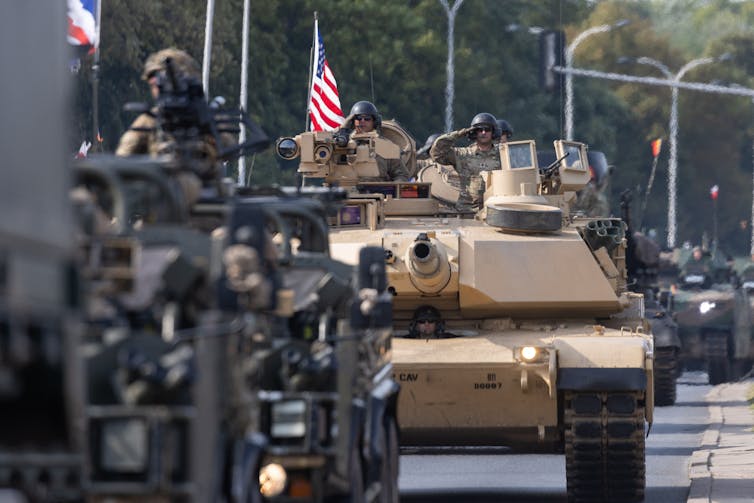Asia Pacific Report
The Palestine Solidarity Network Aotearoa has called on New Zealanders to condemn the US bombing of Iran.
PSNA co-chair Maher Nazzal said in a statement that he hoped the New Zealand government would be critical of the US for its war escalation.
“Israel has once again hoodwinked the United States into fighting Israel’s wars,” he said.
- READ MORE: US bombs Iranian nuclear sites – Iran fires missiles at Israel
- US strikes: Ignore the propaganda, 10 forces will shape the Iran-Israel war
- Other Middle East crisis reports
“Israel’s Prime Minister has [been declaring] Iran to be on the point of producing nuclear weapons since the 1990s.
“It’s all part of his big plan for expulsion of Palestinians from Palestine to create a Greater Israel, and regime change for the entire region.”
Israel knew that Arab and European countries would “fall in behind these plans” and in many cases actually help implement them.
“It is a dreadful day for the Palestinians. Netanyahu’s forces will be turned back onto them in Gaza and the West Bank.”
‘Dreadful day’ for Middle East
“It is just as dreadful day for the whole Middle East.
“Trump has tried to add Iran to the disasters of US foreign policy in Iraq, Syria and Afghanistan. The US simply doesn’t care how many people will die.”
New Zealand’s Foreign Minister Winston Peters “acknowledged the development in the past 24 hours”, including President Trump’s announcement of the US strikes on Iran’s nuclear facilities.
He described it as “extremely worrying” military action in the Middle East, and it was critical further escalation was avoided.
“New Zealand strongly supports efforts towards diplomacy. We urge all parties to return to talks,” he said.
“Diplomacy will deliver a more enduring resolution than further military action.”
The Australian government said in a statement that Canberra had been clear that Iran’s nuclear and ballistic missile programme had been a “threat to international peace and security”.
It also noted that the US President had declared that “now is the time for peace”.
“The security situation in the region is highly volatile,” said the statement. “We continue to call for de-escalation, dialogue and diplomacy.”
Iran calls attack ‘outrageous’
However, the Iranian Foreign Minister, Abbas Araghchi, said the “outrageous” US attacks on Iran’s “peaceful nuclear installations” would have “everlasting consequences”.
His comments come as an Iranian missile attack on central and northern Israel wounded at least 23 people.
In an interview with Al Jazeera, Dr Mehran Kamrava, a professor of government at Georgetown University in Qatar, said the people of Iran feared that Israel’s goals stretched far beyond its stated goal of destroying the country’s nuclear and missile programmes.
“Many in Iran believe that Israel’s end game, really, is to turn Iran into Libya, into Iraq, what it was after the US invasion in 2003, and/or Afghanistan.
“And so the dismemberment of Iran is what Netanyahu has in mind, at least as far as Tehran is concerned,” he said.
US attack ‘more or less guarantees’ Iran will be nuclear-armed within decade
‘No evidence’ of Iran ‘threat’
Trita Parsi, the executive vice president of the Quincy Institute for Responsible Statecraft, said there had been “absolutely no evidence” that Iran posed a threat.
“Neither was it existential, nor imminent,” he told Al Jazeera.
“We have to keep in mind the reality of the situation, which is that two nuclear-equipped countries attacked a non-nuclear weapons state without having gotten attacked first.
“Israel was not attacked by Iran — it started that war; the United States was not attacked by Iran — it started this confrontation at this point.”
Dr Parsi added that the attacks on Iran would “send shockwaves” throughout the world.
This post was originally published on Asia Pacific Report.
